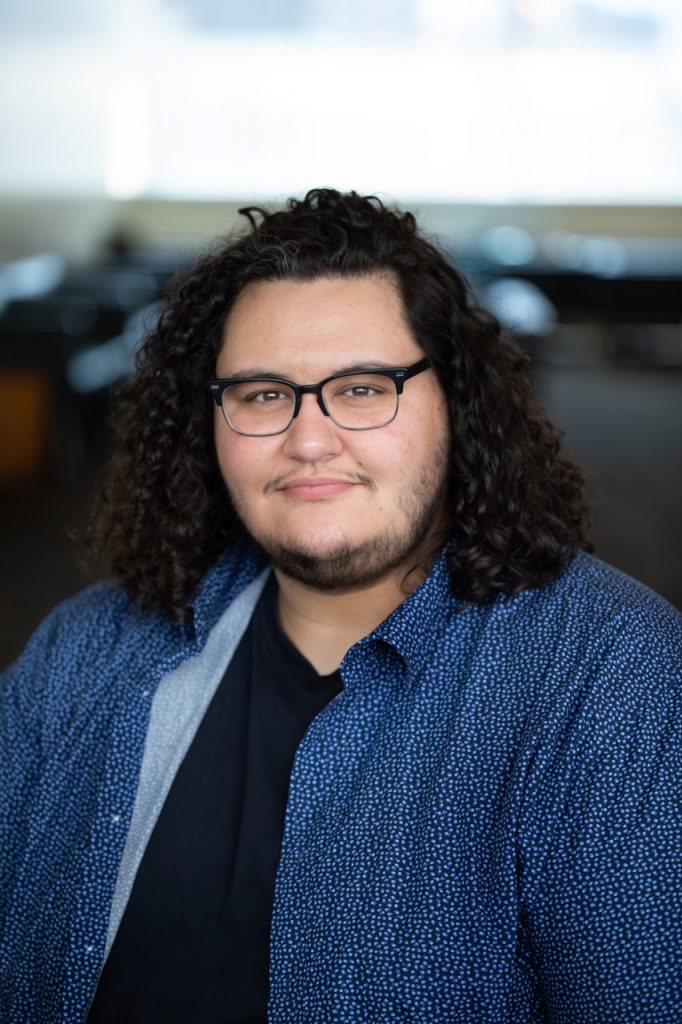Building Respectful Inclusion One Semester at a Time
August 1/2019
Dr. Fady Shanouda does not require student accommodation letters. He does not believe in late marks or penalties. He uses close-captioned slides, and his handouts are at least 16 point font for those with low vision. And he records lectures so students who can’t make it to class, for mental health or other reasons, can still participate from home.
He takes every opportunity to make his lectures accessible and inclusive. This is the way, he believes, all university and college programs and classes should be set up.
That is not always the case.
Shanouda is trying to improve access for students with disabilities at Canadian postsecondary institutions by creating an accessible classroom that no longer requires students to divulge their medical details. His hope is that universities and colleges become accessible, so that every student can succeed at their highest potential. In his ideal world, accommodation letters would never be needed again.
The 32-year old recently defended his PhD at DLSPH on improving access to learning for marginalized groups, including disabled and “mad”students in higher education. Through his work he hopes one day that disabilities service offices will be dissolved — no longer needed on campuses.
The process for disabled students to obtain academic accommodations seems straightforward on the surface, but it “enacts a sort of violence that goes unaddressed because it is just part of the system,” he says. Shanouda emphasizes the word violence because he wants this discussion to be taken seriously and not “swept under the rug”. He refers to this process as “biocertification”, citing Ellen Samuels, where one’s difference must become certified by medicine or a representative of medicine. And it’s not just a few easy steps. It took one of Shanouda’s participants seven months to officially register. The process is costly, time consuming, and overall invasive.
If a student is successful in registering, in theory the piece of paper they are granted awards them different types of accommodations, such as access to note-taking services, extensions on assignments, and private test-taking spaces. However, that accommodation letter is not always sufficient for professors and teaching assistants. Shanouda interviewed a student who had to disclose their story 25 times to various professors and other university personnel – all of whom now know this student’s private medical information. The process of disclosing this information over and over again can be, according to one participant he interviewed, logistically and psychologically exhausting.

Dr. Fady Shanouda
Shanouda asks if this is a fair exchange for extra time, a quiet room, or noise-cancelling head phones. Alternatives currently exist: He prefers Universal Design for Learning, a more inclusive approach because it’s flexible to accommodate different needs. Already, there are pockets of professors, teaching assistants, registrars, disability service counsellors and advisors practicing this method.
This system is the reason he does not accept accommodation letters. Accommodations he notes, “are reactive, but access is proactive, because everything is set up beforehand”. University students are adults, and school is just one part of their lives. Higher education, he says “is an option, and not a requirement to live a life”, where normative timelines and normative expectations only help very few individuals. Instead, he aims to help as many succeed as possible.
Being in the system, as a course instructor at the University of Toronto and Ryerson University, and having recently evaluated the system from the outside through his PhD work, Shanouda is in a unique position. He is able to fight the system from within by creating micro-changes, while also enacting change from the outside looking in. Instead of having to combat an internal struggle of working in a system he does not always agree with, he has used this opportunity to develop programs that have led to positive gains.
Over the last two years, he and his colleagues at the Teaching Assistants’ Training Program, at the U of T’s Centre for Teaching Support and Innovation, have added an “access check-in” in addition to more content about making classrooms accessible to the training modules for new teaching assistants. Over 4,000 teaching assistants have now been exposed to this training on access and equity. And next month, he will move to the University of London to start a two-year postdoctoral fellowship to study the technology-based solutions that have emerged in response to international students’ mental health in the UK, and globally.
Shanouda dreams big. He sees a future where we welcome differences and embrace the changes different people bring into the classroom. He hopes that everyone will acknowledge that these differences exist instead of setting up more policies and more bureaucracy that currently control, constrain and isolate different groups into different boxes.
And he hopes one day that disability service offices no longer exist on campuses.
Dr. Alexandra Rendely is a resident physician in physical medicine and rehabilitation at the University of Toronto who is participating in U of T’s Certificate in Health Impact program, based at the Dalla Lana School of Public Health.